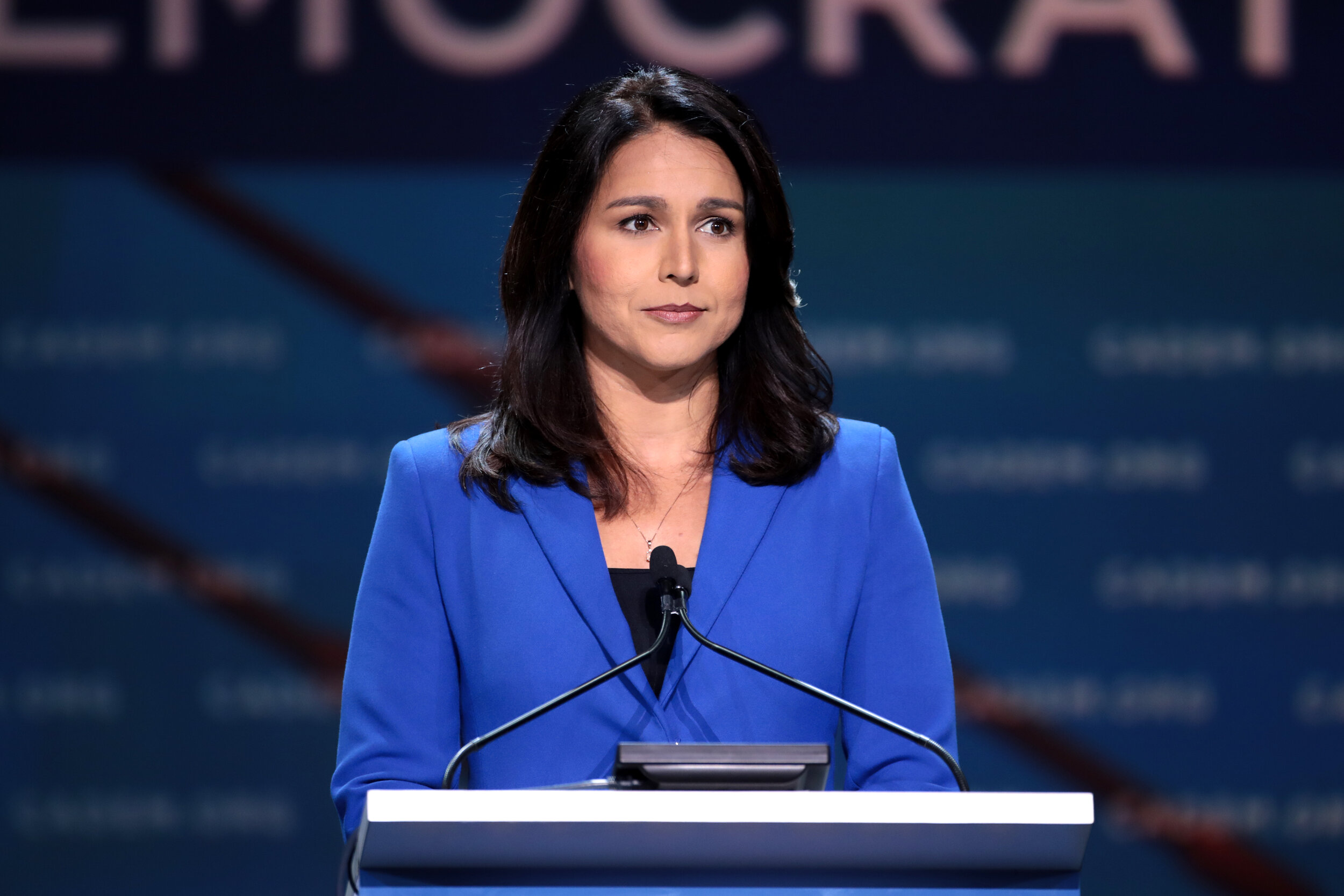Tulsi Gabbard's proposed changes to the Espionage Act put principle over secrecy

Dr. J. Robert Oppenheimer, often credited as the “father of the atomic bomb” once said, “the wages of secrecy are corruption.” Dr. Oppenheimer knew this all too well, as his position transitioned from nuclear development to staunch nuclear opposition, costing him his security clearance and career in the United States Government. He experienced first hand the incredible inertia that an organization can develop in the fringes of the “black” development world, at times driving these organizations into the unconscionable. He believed “that the only way to avoid error is to detect it, that the only way to detect it is to be free to enquire.”
“The Espionage Act, passed two months after the United States entered WWI in an environment of extreme xenophobia, is in desperate need of amendment.”
In the course of more than a decade working in the Department of Defense’s world of secrecy, I came to know the difficulties surrounding the freedom to inquire.
Certainly, few will question the necessity of secrecy when developing new defense technologies or compartmentalizing sources and methods of intelligence collection. However, it is when this necessity strays into the illegal that whistleblowers must be empowered to safely expose these actions. This would seem an obvious component of a free society, but the waters muddy quickly when moving from theory to reality. History has shown that the line between whistleblower and spy is thin and precarious.
U.S. Rep. Tulsi Gabbard introduced H.R. 8452, a bill that would amend the Espionage Act to allow whistleblowers to refer to their motives in court.
[image: Gage Skidmore]
In perhaps an attempt to clarify that distinction, U.S. Rep. Tulsi Gabbard, a current U.S. Army Reserve Officer and combat veteran, introduced H.R. 8452 on September 30, 2020. In highly classified environments, the dangerous cocktail of groupthink and self-preservation is a powerful limiter of individual inquiry. When a whistleblower takes action, they might find themselves facing prosecution under the 1917 Espionage Act. This act defines the rights, or lack thereof, of the accused. As it currently stands, the accused are not afforded the opportunity to speak to their motivations in court. Rep. Gabbard’s bill changes that.
She introduced this bill alongside two bi-partisan resolutions, H.R. 1162 and H.R. 1175, calling for charges to be dropped against Edward Snowden and Julian Assange, respectively. My views of the validity of Edward Snowden’s whistleblower claims and the responsibility of Julian Assange as a member of the media are not relevant to this discussion, but Snowden and Assange are important to mention in the context of Rep. Gabbard’s bill. Both of these individuals face prosecution under the Espionage Act and both of these individuals have publicly denied allegations of espionage. Don’t get hung up on these two cases, however. Google “Pentagon Papers” if you want a case that is a bit more cut and dry (and perhaps a bit more shocking).
So where do I stand on Rep. Gabbard’s bill? Simple. I stand where I stood as an intelligence officer with the Air Force and the Defense Intelligence Agency. I stand with the Constitution. I stand with the individual’s right to freedom of speech and due process. I stand with the basic principle of our justice system — that an individual is innocent until proven guilty. The Espionage Act, passed two months after the United States entered WWI in an environment of extreme xenophobia, is in desperate need of amendment. Emotion may be at the heart of patriotism, but it has absolutely no place in our justice system. We must protect the secrecy of our defense effort, but not at the expense of our foundational principles, and certainly not at the expense of the brave individuals who sacrifice everything they know to ensure those principles endure.
John Falco spent over 12 years working in defense intelligence around the globe. He was commissioned into the United States Air Force as an intelligence officer and worked in roles ranging from human intelligence to weapons development. He later joined the Defense Intelligence Agency as an intelligence officer focused on intelligence collection systems program management. His work sent him to multiple countries, including Colombia, Honduras, South Korea and Iraq. He now owns and operates Fire Pit Hospitality Group, with brands Lincoln’s Beard Brewing Company, Strange Beast Brewpub & Pizzeria, and Maxwell Bros. Clothing Store. He still attempts to stay in analytic shape via his and his intelligence colleague’s podcast, Redacted Gentlemen.











![U.S. Rep. Tulsi Gabbard introduced H.R. 8452, a bill that would amend the Espionage Act to allow whistleblowers to refer to their motives in court. [image: Gage Skidmore]](https://images.squarespace-cdn.com/content/v1/573f802837013bfb8159295a/1609962027164-ILNUU27E03223OPK9VWO/Tulsi_Gabbard_by_Gage_Skidmore.jpg)


